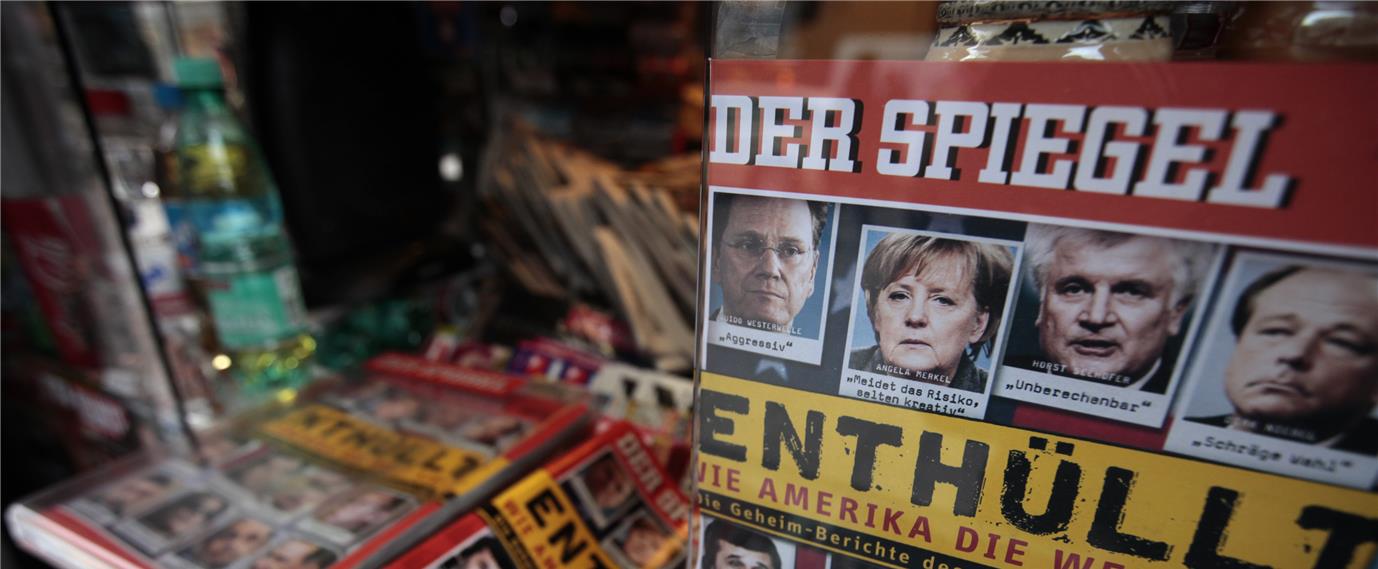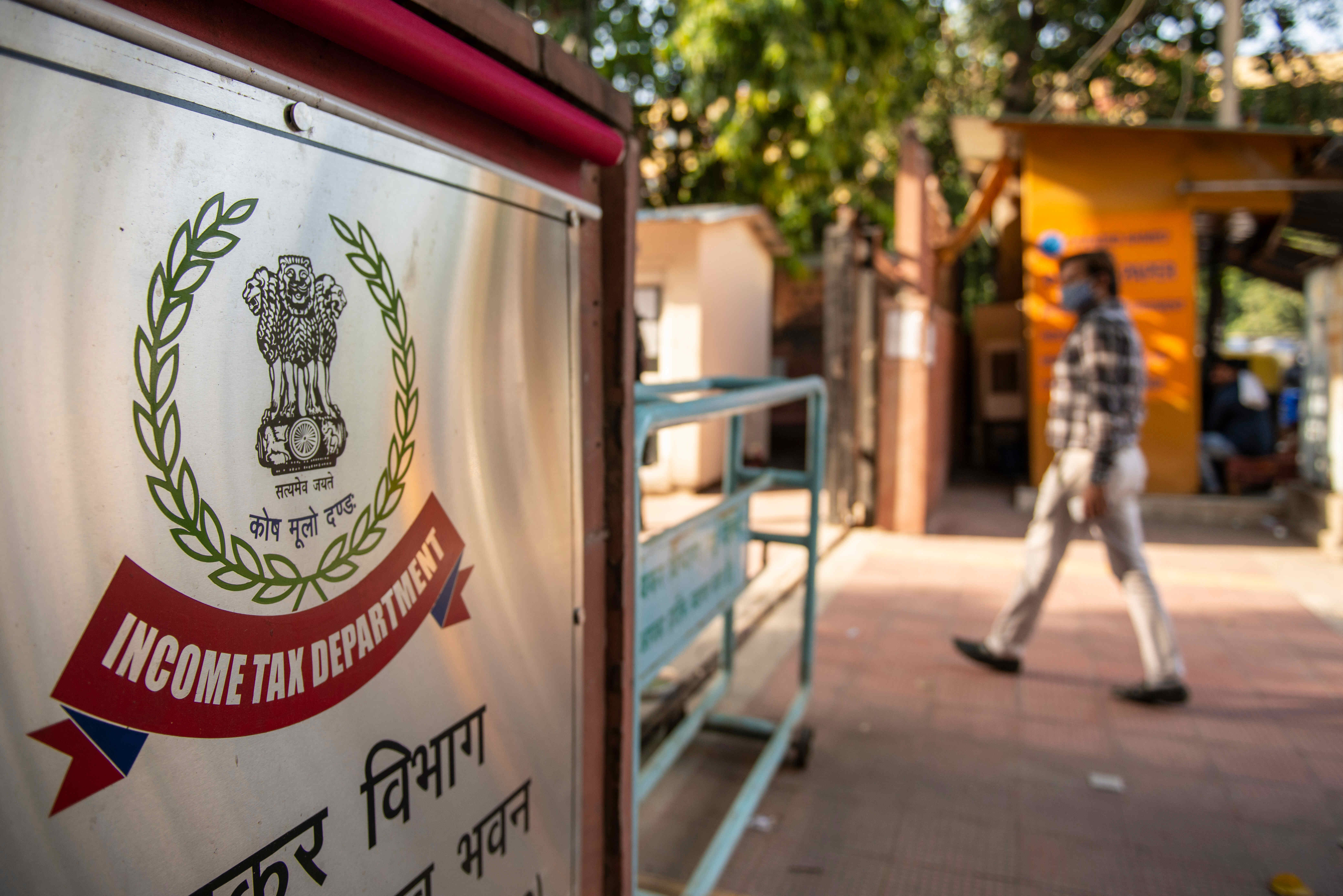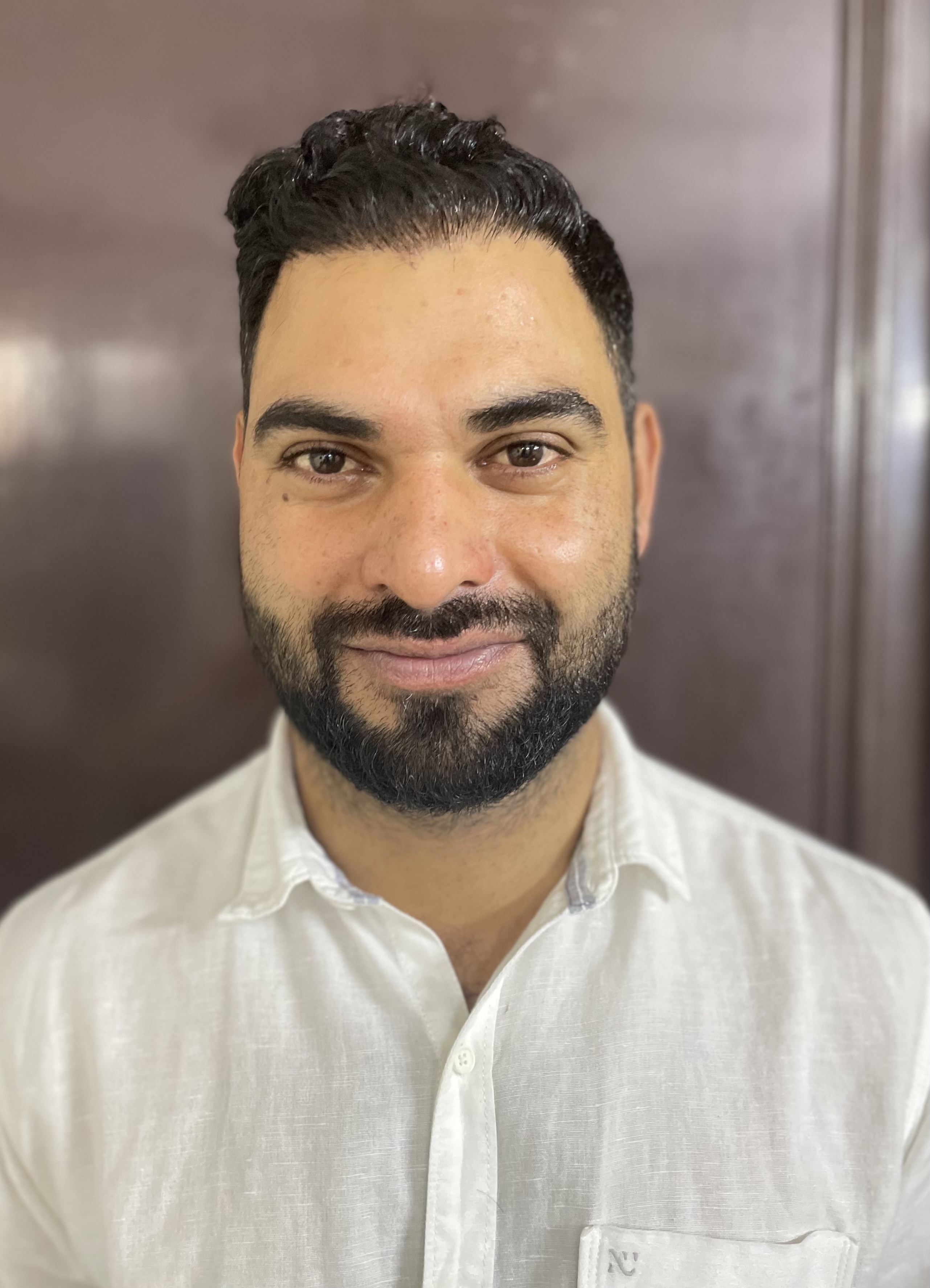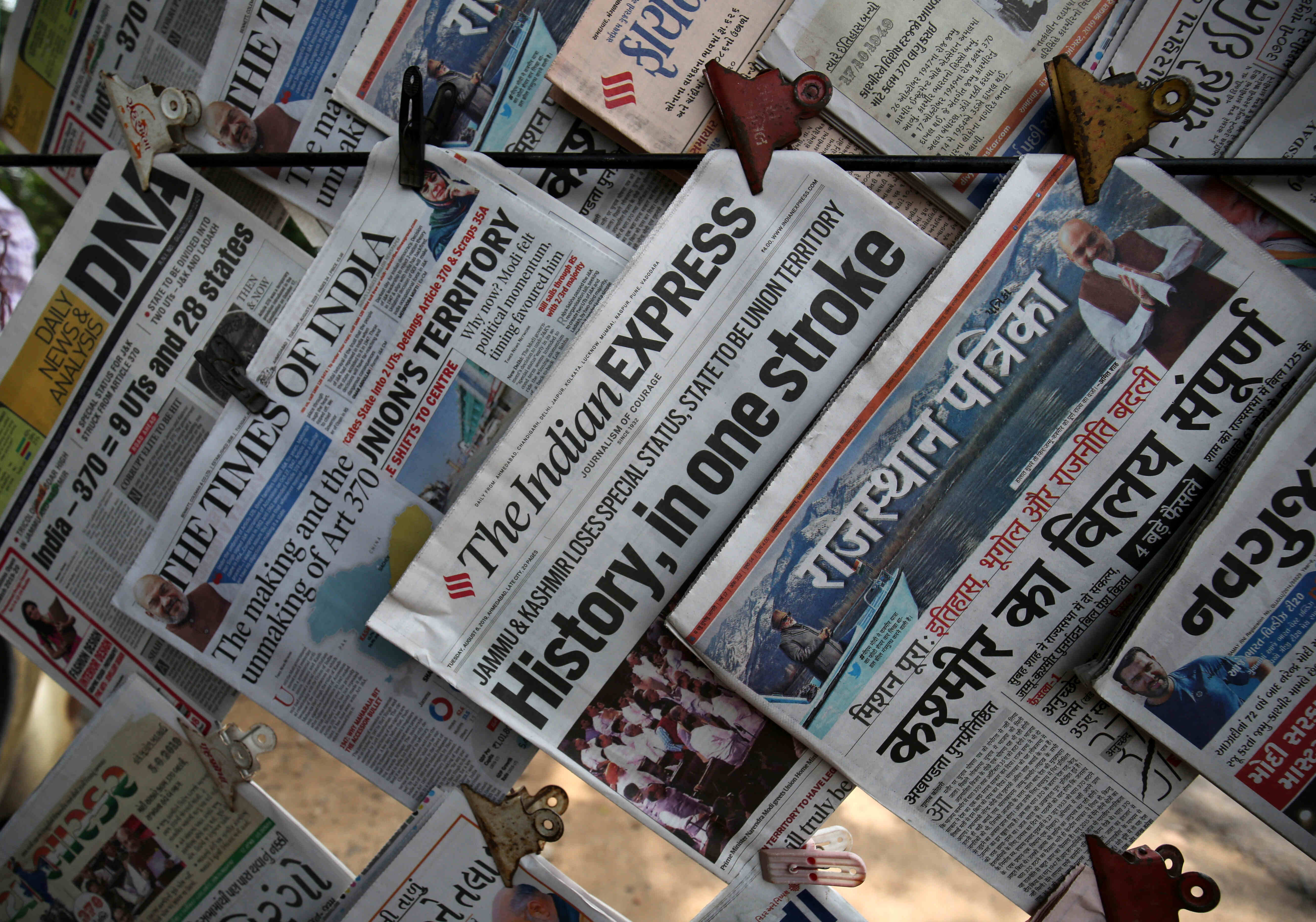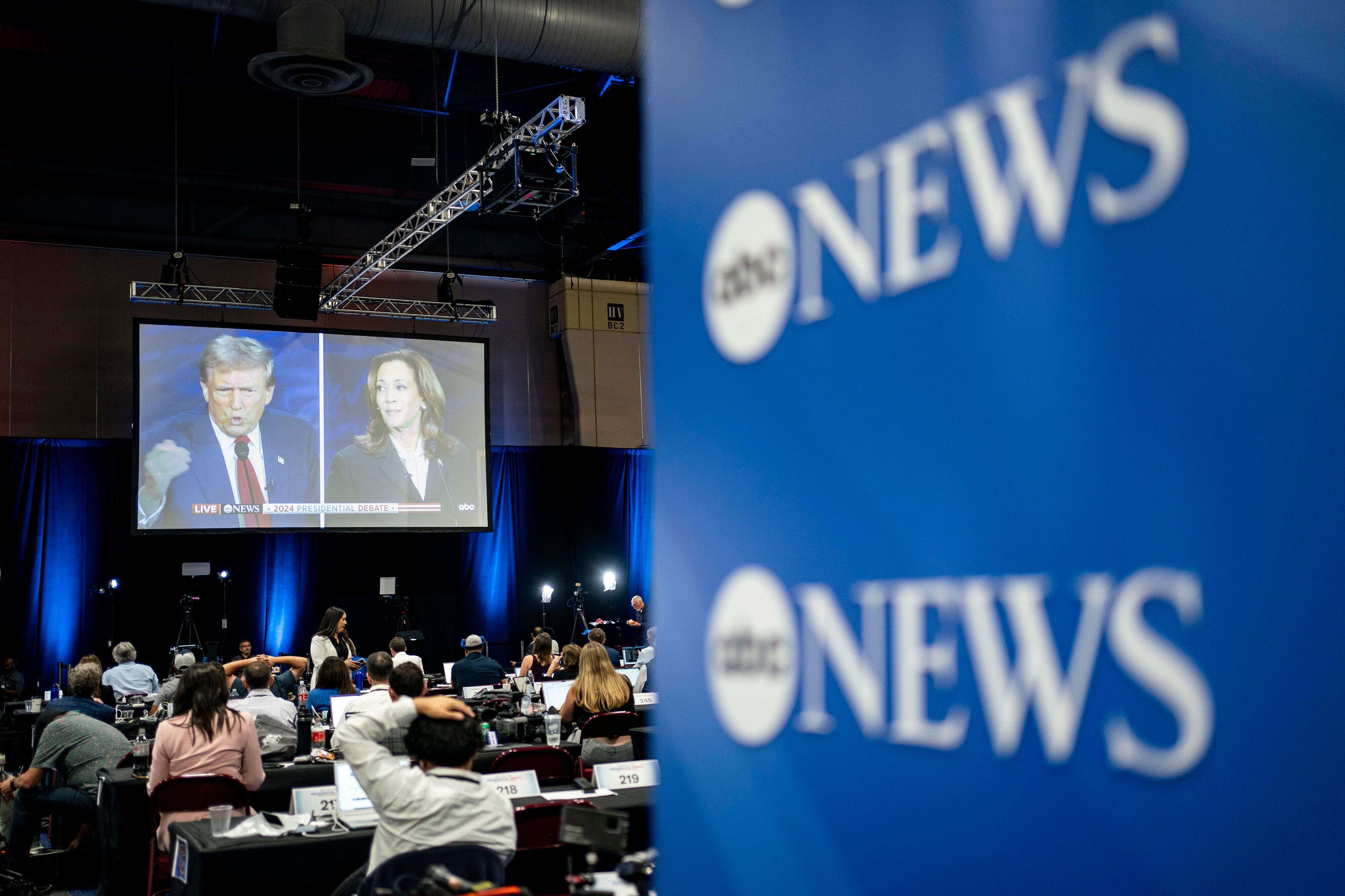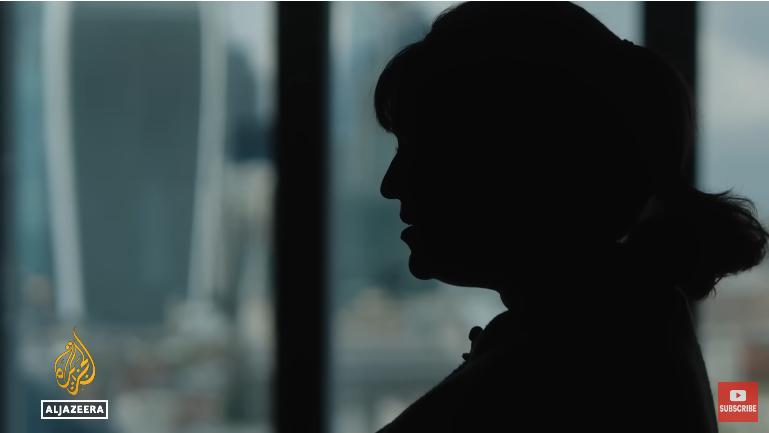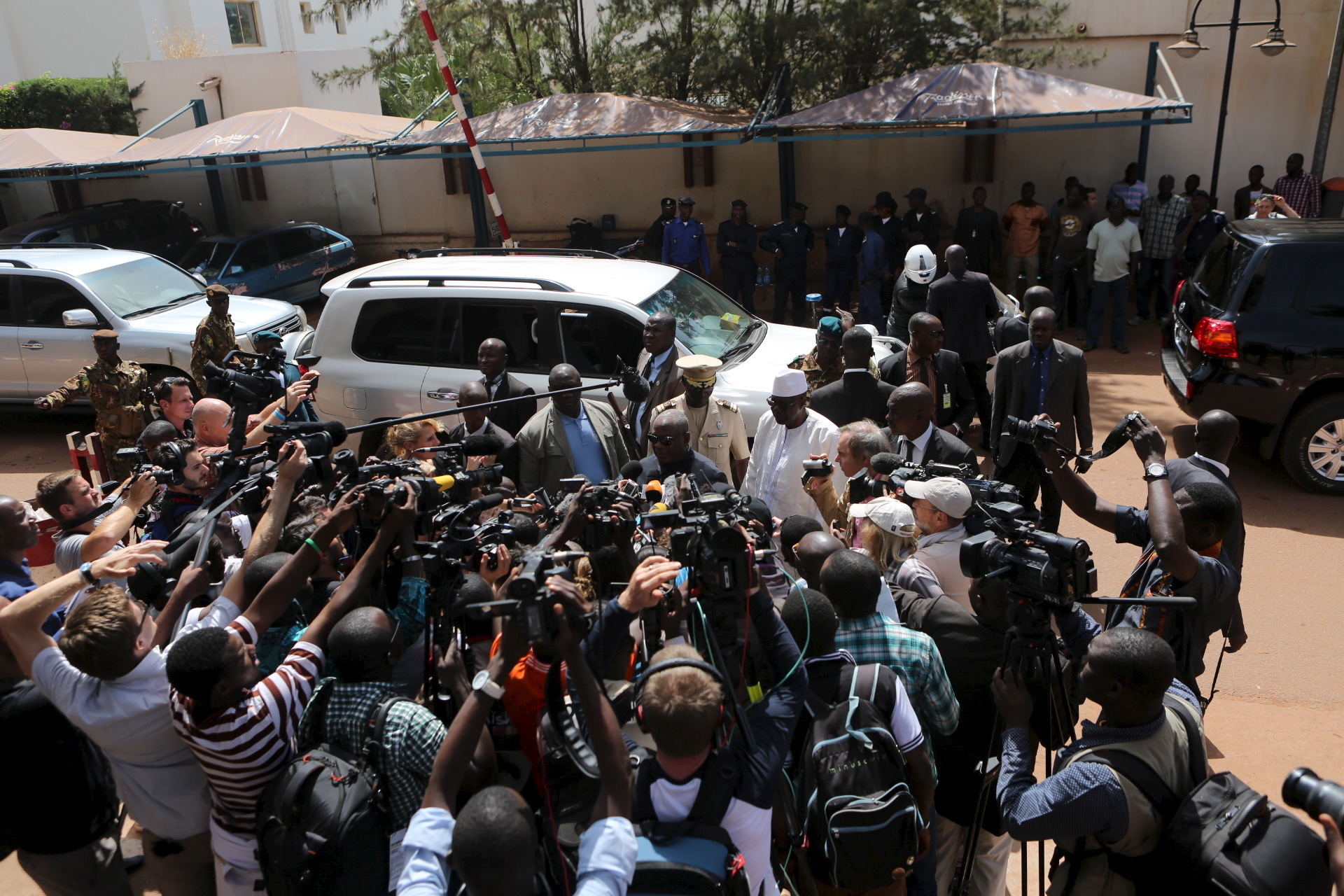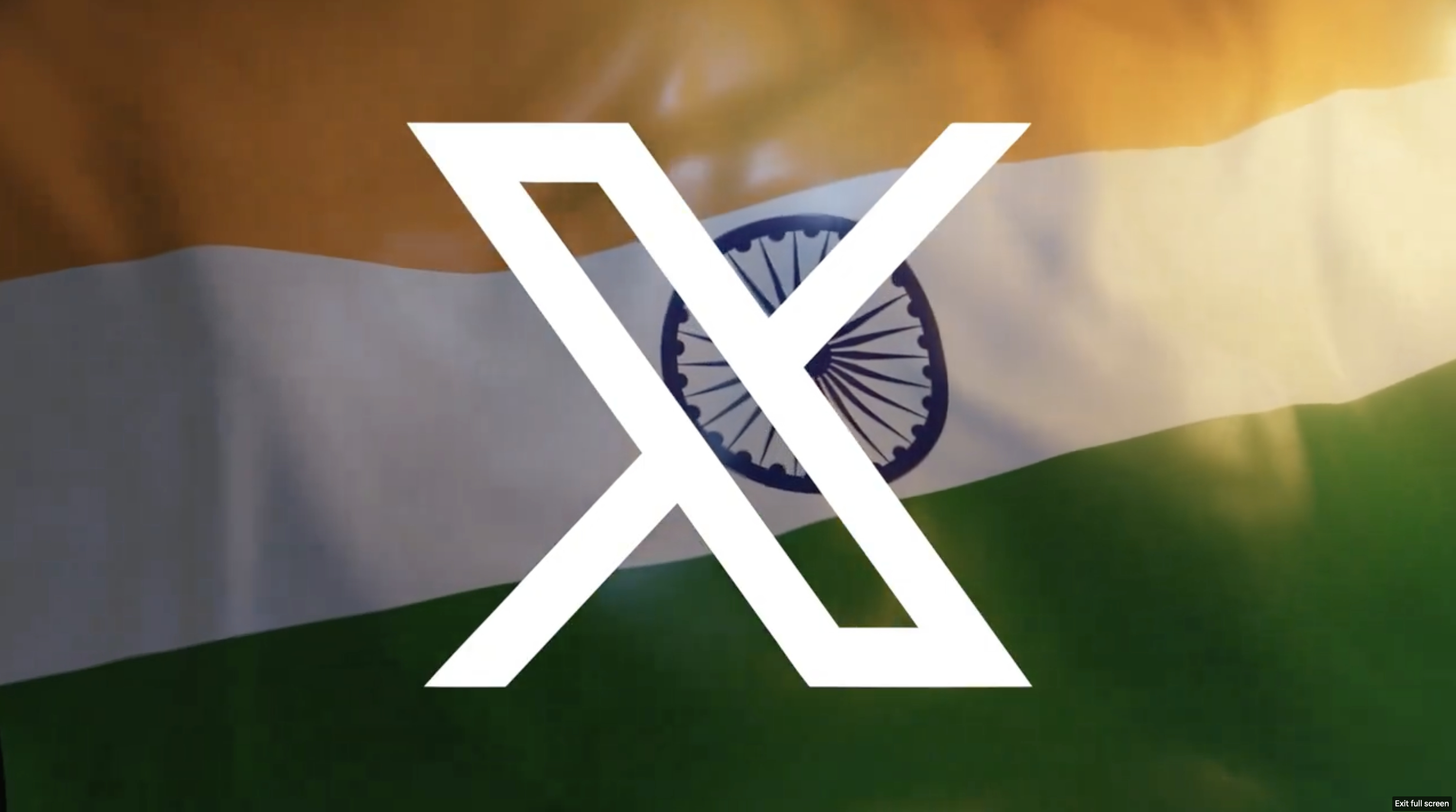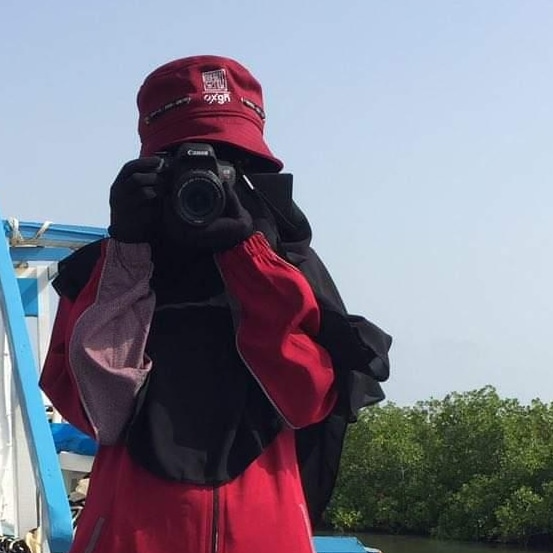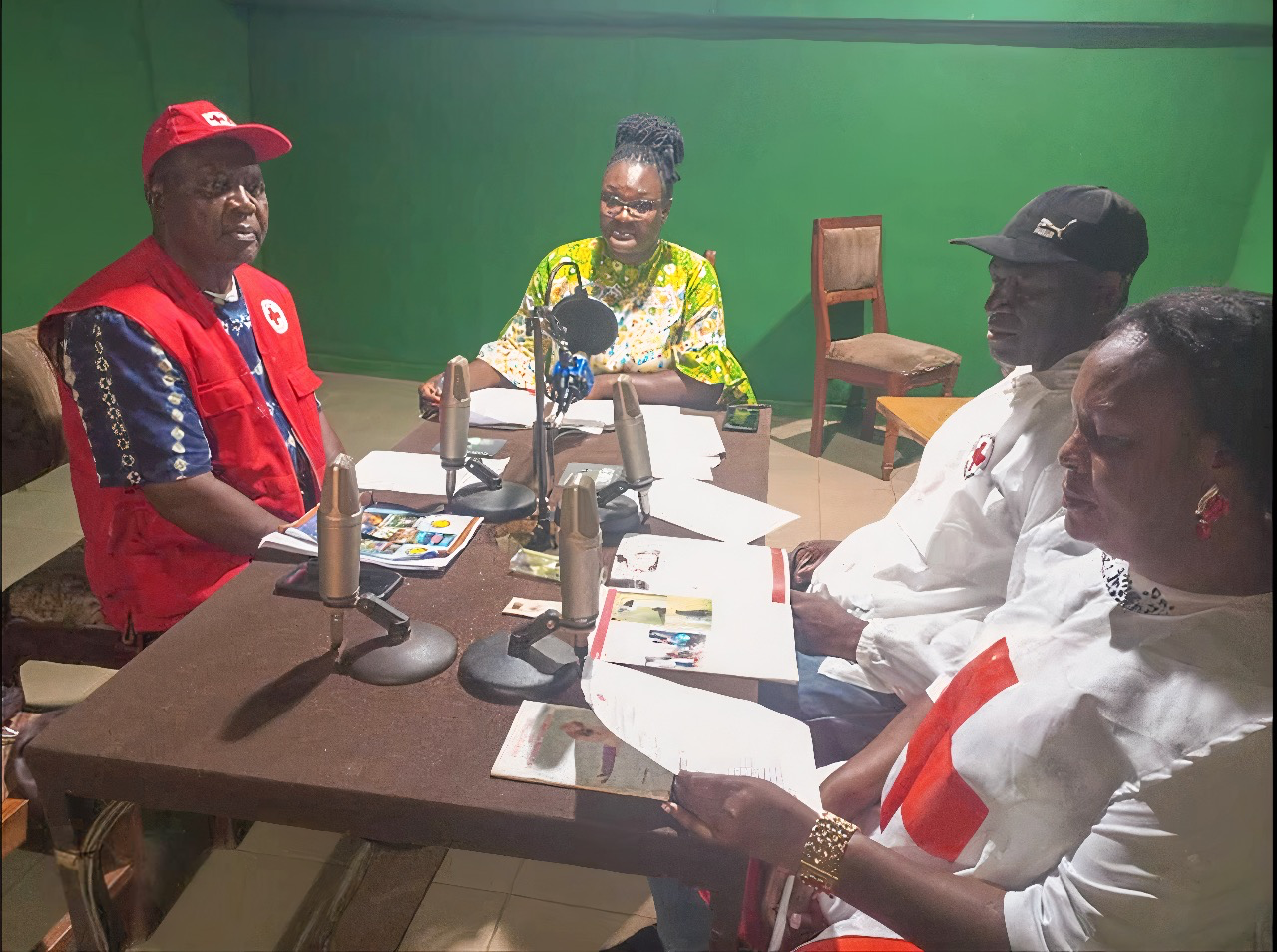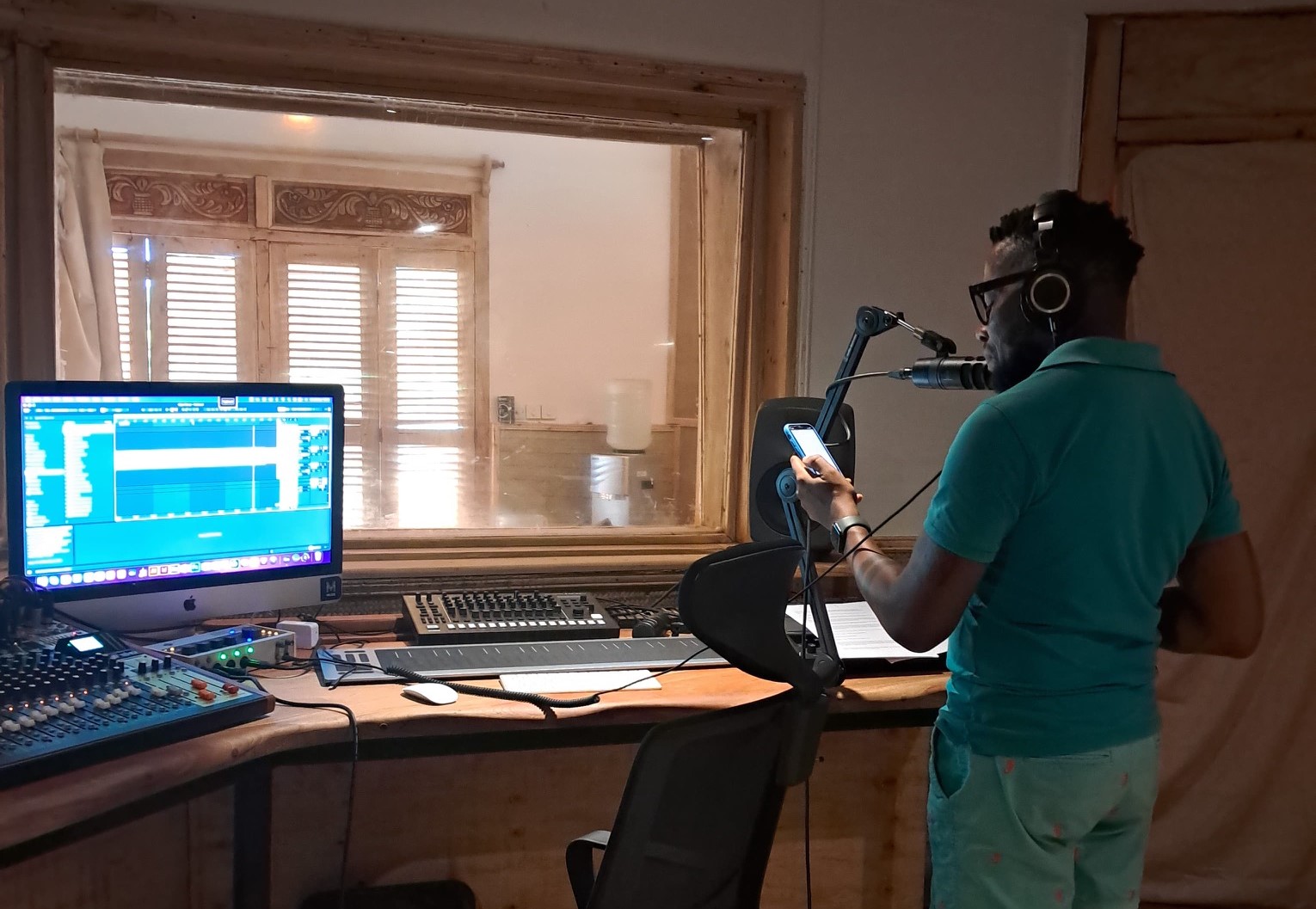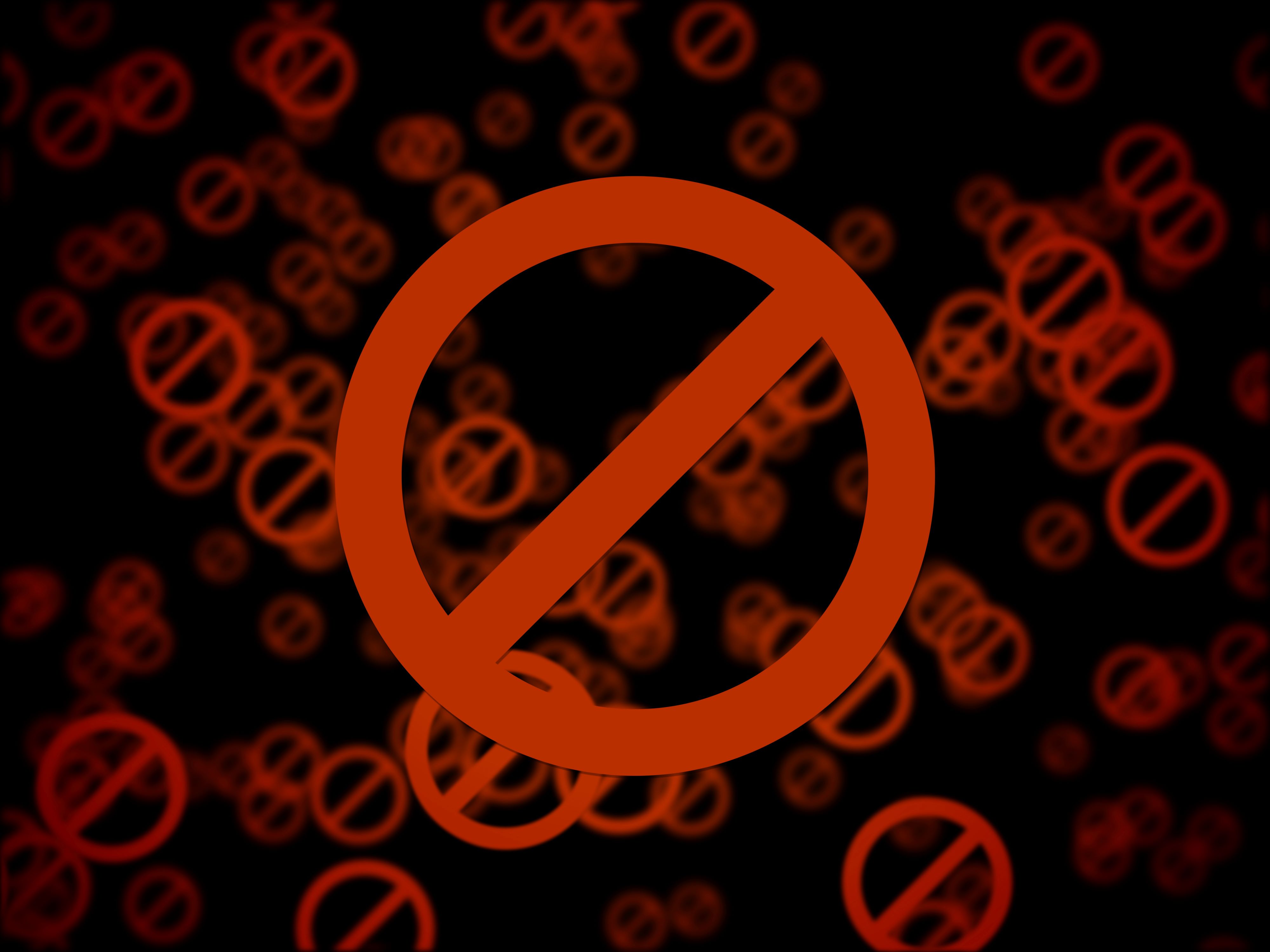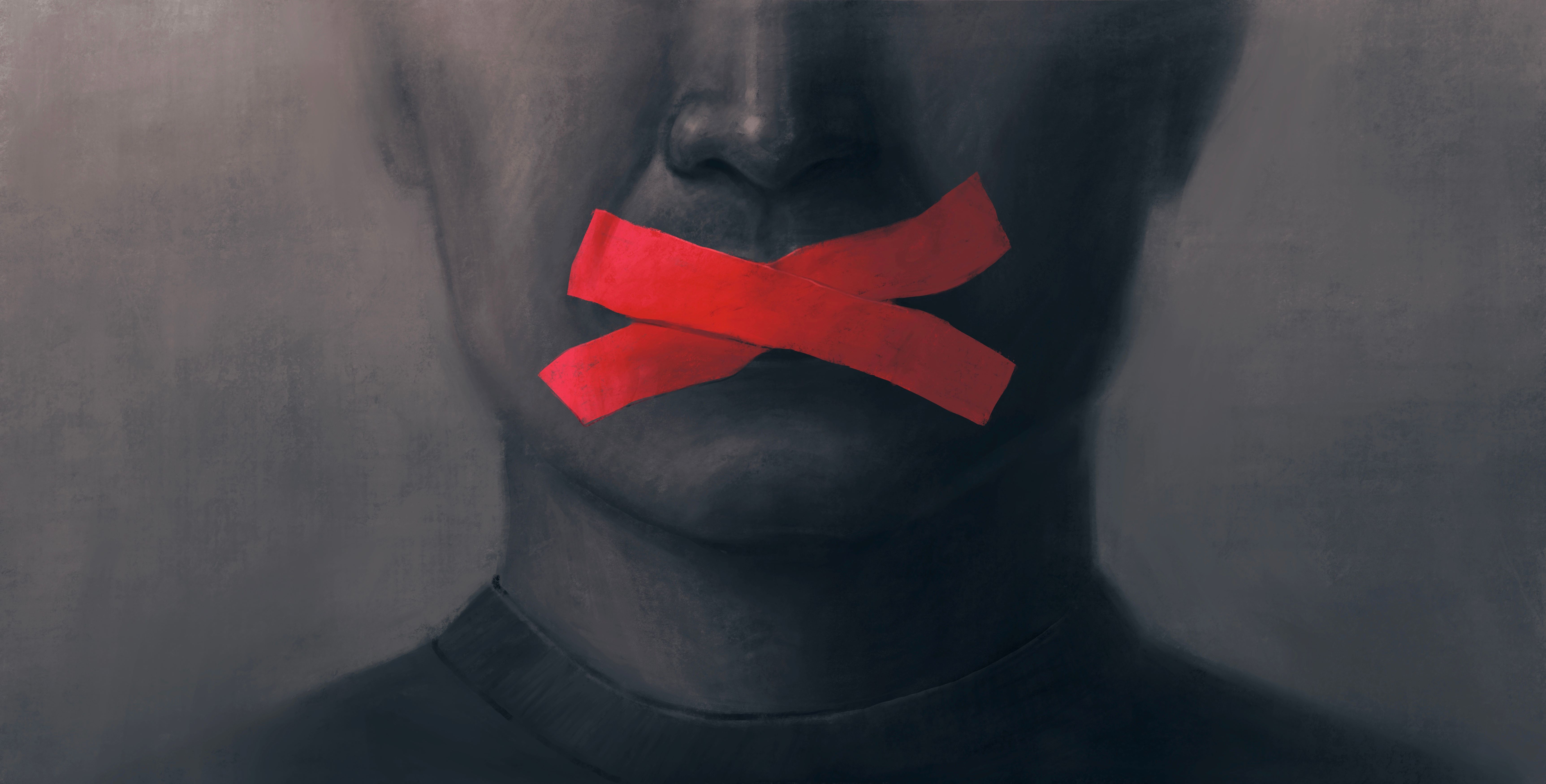بدأ الأمر بصندوق من الورق المقوى مليء بقصاصات الصحف. عام 1947 قام رودولف أوغستين Rudolf Augstein مؤسس وناشر دير شبيغل، بإصدار تعليماته بوجوب جمع الأعداد السابقة وحفظها في أرشيف.
كبر الصندوق فامتدت رفوفه إلى مئات، ثم آلاف الأمتار. تم تصنيف الصحف والمجلات ومواد وسائل الإعلام الإخبارية الأخرى بالإضافة إلى الوثائق الأصلية من الجهات الحكومية والمصادر المختلفة. امتدح أوغستين أرشيفه قائلا: "يمكنه استحضار أكثر المعلومات غرابة". توفي أوغستين عام 2002.
كان أوغستين يؤمن إيمانا راسخا، وأكثر من أي من أقرانه الآخرين، بقوة وقيمة الاحتفاظ بأرشيف، وبأهمية استخدامه في عملية التحقق من المعلومات.
حتى نهاية الثمانينيات، كان أرشيف دير شبيغل ورقيا فقط، ومع بداية التسعينيات توسع الأرشيف التقليدي باتجاه العالم الافتراضي. يضيف الأرشيف اليوم60,000 مادة أسبوعيا إلى نظام الأرشيف المبرمج خصيصا لهذا الغرض (Digas). وتُجمع هذه المواد والمعلومات من ما يزيد عن 300 مصدر تتم مراجعتهم بانتظام، ويشمل الصحافة الألمانية بأكملها إضافة إلى عدة إصدارات دولية. يحتوي نظام الأرشيف Digas حاليا على أكثر من 100 مليون ملف نصي و10 ملايين صورة ورسم توضيحي.
من الأرشيف إلى قسم التوثيق
أدى وقوع خطأ أن جعل دير شبيغل تدرك أن التحقق من المعلومات أمر ضروري. عندما أشار موظف في الأرشيف إلى خطأ كبير في مقال تم نشره بالفعل، أجاب أوغستين إجابة فظة: "في المستقبل، تثبّت من ذلك قبل الطبع".
منذ تلك اللحظة، أصبح التحقق من المعلومات جزءا من مهام موظفي الأرشيف. في يونيو/حزيران 1949 أصدرت دير شبيغل إرشادات لجميع صحفييها تشدد فيها على أهمية التحقق من كل معلومة.
ما يلي بعض ما ورد في هذه الإرشادات:
"يتعين على دير شبيغل أن تتضمن مزيدا من المعلومات المباشرة المستقاة من الأفراد أنفسهم، ومزيدا من المعلومات الأكثر عمقا، ومزيدا من المعلومات عن خلفية الموضوع أكثر من الصحافة اليومية.. فكلما تورده دير شبيغل من أخبار ومعلومات وحقائق يجب أن يكون صحيحا صحة لا تقبل الشك. يجب أن يتم التثبت تثبتا كاملا من كل خبر وكل معلومة قبل نقلها للصحفيين. ويجب تحديد جميع المصادر. فإن كان هناك ما يريب، خير لنا أن لا نستخدم المعلومة بدلا من المخاطرة بنقلها نقلا غير صحيح".
وصف هانز د. بيكر مدير تحرير المجلة عام 1950 هذا التغيير بأنه انتقال من أرشيف تقليدي إلى قسم توثيق.
قال بيكر: "في الأصل، كان يفترض في مكتبة الأخبار أن تجمع المعلومات فقط (أغلبها على شكل قصاصات من الصحف). ولكن ما بدأ على أنه حالة جمع على مبدأ "جمع كل شيء"Dragnet principle أصبح تدريجيا جمعا للمعلومات عن طريق البحث. ووسط "فوضى المعركة" في غرفة الأخبار أصبح جمع المعلومات والبحث عنها لاستخدامها في الصحافة، أصبح تدريجيا يستغل ما تم جمعه وتجميعه لإثبات ما ينقل من أخبار".
كيف تتأكد دير شبيغل من المعلومات اليوم
إن قسم The Dok، كما نسميه، مقسم اليوم إلى أقسام تدعى referats كأقسام غرفة الأخبار: قسم السياسة، والاقتصاد، والثقافة، والعلوم... إلخ. ويوظف ما يقرب من 70 "صحفي توثيق". وهم متخصصون، وكثير منهم يحملون درجات دكتوراة في مجالاتهم المختلفة،ومنهم علماء أحياء وفيزيائيين ومحامين وعلماء اقتصاد وحملة ماجستير في إدارة الأعمال والتاريخ وباحثين في الإسلام وخبراء عسكريين وتخصصات أخرى. يتم تكليفهم للتأكد من المعلومات ولدعم صحفيينا من خلال توفير أبحاث ذات صلة. فور تحرير نص القصة الخبرية، يتم تحويل الصفحة إلى مسؤول معلومات القسم المناسب ليبدأ التحقق من المعلومات.
لدى دير شبيغل سياسة محددة للغاية وأدلة تفصيلية للتحقق من المعلومات. وتضمن هذه العملية تطبيق نفس المعايير على العمل برمته، وتساعد في عدم إغفال أي معلومات أو جوانب أساسية للقصة. يستخدم مسؤولو الأقسام المختلفون نفس العلامات على النصوص، بحيث يكون هناك مستوى من الثبات يضمن الالتزام بمعاييرنا.
هذا التوجه يمكن تطبيقه على أي موضوع، وهو مفيد بشكل خاص في العمل الاستقصائي، والذي يوجب اتباع أعلى المعايير.
بعض العناصر الأساسية في معاييرنا:
- أي معلومة ستنشر يجب التحقق منها للتأكد ما إذا كانت حقيقية بذاتها، وفي سياقها الصحيح، وذلك باستخدام الموارد المتوفرة والوقت المتاح لذلك.
- كل معلومة يمكن أن تخضع للتدقيق والتثبت، يوضع تحتها خط.
- سيتم استخدام علامات موحدة لتحديد كون معلومة ما صحيحة، أو غير صحيحة، أو لا يمكن تدقيقها... إلخ.
سيتم وضع علامة عند المعلومات والأرقام الصحيحة. إذا كان من الضروري إصلاح خطأ ما، فسيتم بيان ذلك بحبر أحمر في الهامش باستخدام علامات المراجعة المعتمدة.
يجب تسجيل مصدر التصحيحات والاقتباسات.
سيتم وضع علامة عند التصحيحات التي يقبلها المؤلف، ويتم وضع (غ.م) إزاء التصحيحات الأخرى (غير المقبولة).
عند التحقق من المعلومات في نص يجب استخدام مصادر أكثر دقة من مصادر الكاتب إن أمكن.
يتم اعتبار المعلومة محققة فقط إذا تم تأكيدها من مصادر موثوق بها أو من قبل خبراء.
إذا ناقضت معلومة بحثية مقولة للكاتب، فيجب إبلاغ الكاتب بالتناقض خلال مناقشة النص. إن تعذر التأكد من معلومة ما، فيجب إبلاغ الكاتب أيضا.
لا يمكن الاتصال بمصدر من مصادر الكاتب، إن كان المصدر هو موضوع المقال، إلا بعد استئذان الكاتب (من الناحية العملية كثيرا ما نتحدث مع مصادر للتأكد من المعلومات).
سيتم إعادة التأكد من المقاطع المعقدة من قبل قسم التوثيق المختص في الموضوع.
أحيانا تتسبب محدودية الوقت المتاح في ضرورة جدولة الأولويات. في هذه الحالات، يتم أولا التأكد من المعلومات التي هي مسؤولية محقق المعلومات، خاصة فيما يتعلق بـِ:
1. هل الأوقات والتواريخ صحيحة؟
2. هل يناقض النص نفسه؟
3. هل الأسماء والمسميات الوظيفية دقيقة؟
4. هل النصوص المقتبسة صحيحة (في كلماتها وفي سياقها)؟
5. ما مدى الثقة في المصادر المستخدمة، وما مدى مواكبتها للأحداث الراهنة؟
تمثل القائمة الآنفة أهم العناصر التي يجب تدقيقها في مقال عندما يكون هناك وقت محدود للتأكد من المعلومات. يجب على غرف الأخبار التي لا تملك قسما مماثل للتوثيق أن تؤكد على مراسليها ومحرريها أن يعاودوا تدقيق جميع تلك العناصر في أي قصة قبل النشر.
تقييم المصادر
يبدأ تدقيق المعلومات بمقارنة مسودة القصة الخبرية مع مواد البحث التي يوفرها الكاتب. يسعى محقق المعلومات بعد ذلك إلى التحقق من المعلومات والتأكيدات بجمع المزيد من المصادر المستقلة عن بعضها البعض. يدقق المدقق القطع المفصلية برجوعه لمجموعة متنوعة واسعة من المصادر كي يفحص ما هو مقبول ومصدق بشكل واسع، وما هو وجهة نظر أقل موضوعية أو منحازة. يحدد المدققون ما هو أمر واقعي، وما هو خلافي، أو في بعض الأحيان، ما هو خرافة.
نحن نستخدم قاعدة بيانات دير شبيغل للإتيان بالمصادر ذات الصلة والموثوقة (المصادر الرسمية). كما أن مسؤولية كل محقق معلومات في دير شبيغل هي أن يدرس الأوراق، والدوريات، والدراسات، والمدونات... إلخ ذات الصلة، كل حسب تخصصه، دراسة يومية، وأن يعرف مدى مصداقية المصادر المختلفة.
هذا النوع من الخبرة في المجالات المختلفة أساسي عند تقييم مصداقية المصادر. ومع ذلك، فهناك بعض القواعد العامة التي يمكن أن يتم اتباعها عند تقييم المصادر:
أعط أفضلية للوثائق الأصلية. فإن تم الاقتباس من دراسة أكاديمية، احصل على النص الأصلي الكامل. وإن تم ذكر دخل شركة، احصل على معلوماتهم المالية. لا تعتمد على الملخصات والبيانات الصحفية إن أمكنك الحصول على الوثائق الأصلية.
أعط أفضلية للمصادر التي تفصل بين الوقائع والآراء، والتي تمدك بمعلومات في عملها.
أعط أفضلية للمصادر التي تشير بوضوح إلى مصدر معلوماتها، لأن ذلك يُمَكّنك من التحقق من عملهم (يجب التعامل بحذر مع القنوات الإخبارية أو الكيانات الأخرى التي تعتمد بشكل كبير على مصادر مجهلة).
احذر من المصادر التي تقع في أخطاء في المعلومات فيما يخص الوقائع الأساسية، أو التي تخلط بين المفاهيم الأساسية المتعلقة بمادة الموضوع أو البحث.
أمثلة لوثائق تم التأكد منها
بعد أن تمت مراجعة مقال في دير شبيغل يقوم المدقق بمناقشة الكاتب بإمكانية إجراء بعض التصحيحات إلى أن يتفقا على النسخة النهائية. ينفذ الكاتب التصحيحات على النص. يقوم المدقق بالتأكد من التصحيحات مرة ثانية بالإضافة إلى أي تغيرات أخرى يمكن أن تكون قد حدثت في غضون ذلك.
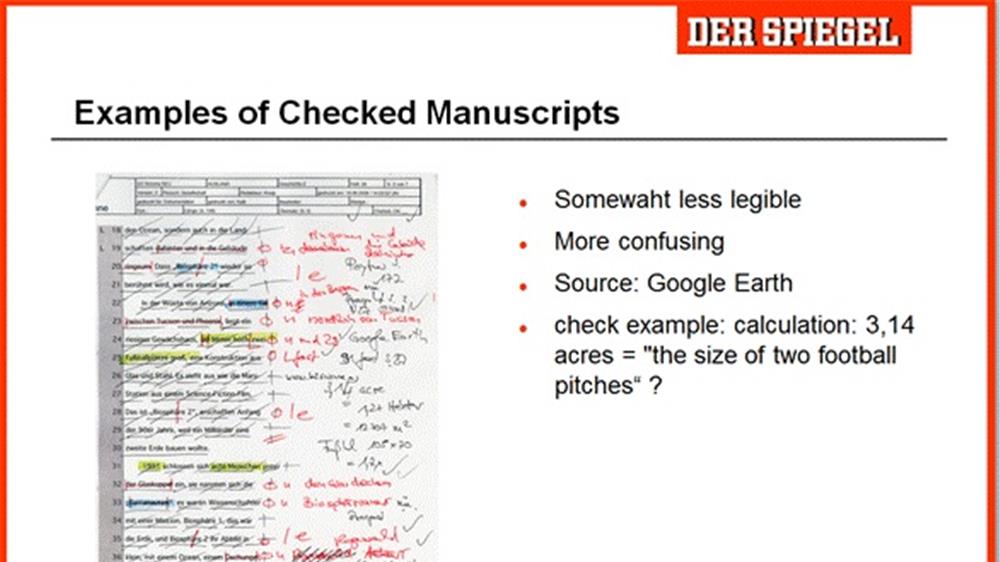
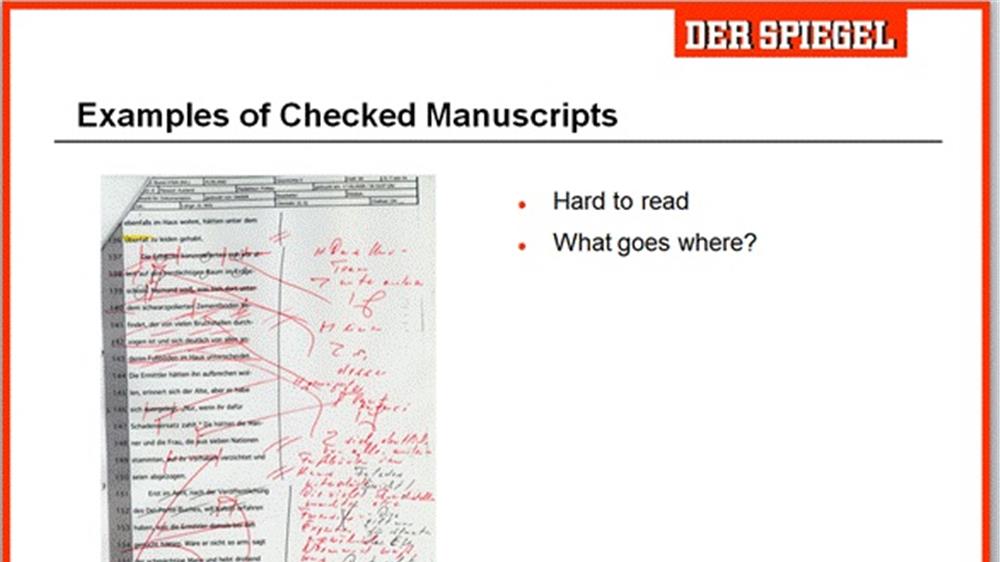
الدقة هي المطلب الأساسي في التغطية الصحفية الموضوعية. الصحفيون يخطئون عمدا أو دون عمد. والأخطاء تدمر أثمن ما يملكه الصحفي: الموضوعية. فهي، في نهاية الأمر، أكثر صفة يعتد بها الصحفيون لتمييز صحافتهم.
أحد طرق تقليل احتمالية وقوع الأخطاء هي التحقق، أي التأكد من المعلومات قبل النشر.
في عام 2008 أعدت رسالة علمية في جامعة هامبورغ أحصت جميع التصحيحات التي قام بها قسم التوثيق في عدد واحد من دير شبيغل. كان العدد النهائي 1153. وحتى إن استثنينا التصحيحات المتعلقة بالأخطاء الإملائية والأسلوب، يبقى 449 خطأ و400 قطعة غير دقيقة، اعتبر أكثر من 85%منها ذات صلة أو وثيقة الصلة بالموضوع.
يتبع...
هذا التقرير مأخوذ من كتاب "دليل التحقق للصحافة الاستقصائية" الذي ترجمه معهد الجزيرة للإعلام بالتعاون مع مركز الصحافة الأوروبي. للاطلاع على الكتاب كاملا الرجاء الضغط على الرابط أدناه.
http://verificationhandbook.com/book2_ar/handbook2.arabic.pdf
